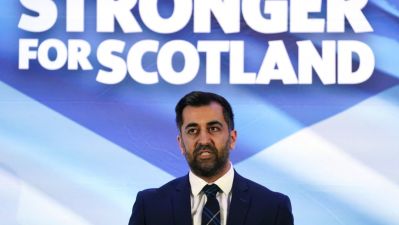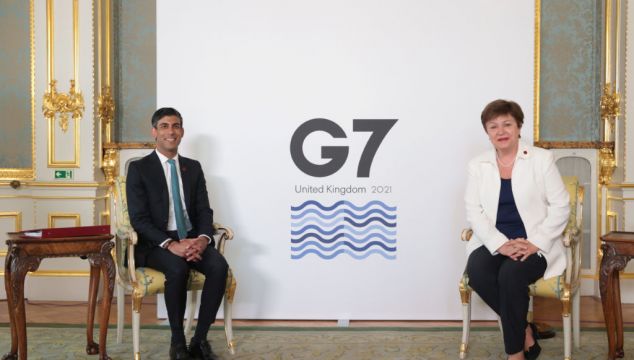The International Monetary Fund (IMF) has upgraded its forecast for the UK economy this year and next, but still expects it to grow slower than other Group of Seven (G7) countries.
UK output is expected to contract by 0.3 per cent this year before rebounding to grow by 1 per cent next year, economists working for the body said.
It puts the UK firmly at the bottom in the G7 group of advanced economies this year. The only other economy that the IMF expects to decline is Germany’s, which is expected to contract by 0.1 per cent.
But it is at least better news than a previous IMF forecast, which predicted that the economy would shrink by 0.6 per cent this year.
The group singled out the UK and parts of Europe as the places which will struggle over the coming years.
“Notably, emerging market and developing economies are already powering ahead in many cases, with growth rates (fourth quarter over fourth quarter) jumping from 2.8 per cent in 2022 to 4.5 per cent this year,” it said.
“The slowdown is concentrated in advanced economies, especially the euro area and the United Kingdom.”
Next year is more of a mixed bag for the UK. Output here is expected to rise by 1 per cent. It puts the UK towards the bottom of the G7 yet again, tied with Japan and slightly ahead of Italy, which is set to grow by 0.8 per cent.
IMF director of research Pierre-Olivier Gourinchas said: “The UK economy seems to be doing a little bit worse than some other comparable economies (because) there is a higher dependence on imported energy with a high share of gas – and with the gas prices we’ve had last year, that’s a major negative trade shock – there’s a fairly tight labour market and so there has been a need for fairly aggressive tightening of monetary policy.”
The economists also warned of further problems in the months ahead, even following the recent chaos in the banking sector which saw several US banks go out of business and Credit Suisse bought by rival UBS.
“Below the surface, however, turbulence is building, and the situation is quite fragile, as the recent bout of banking instability reminded us,” the IMF said.
“Inflation is much stickier than anticipated even a few months ago. While global inflation has declined, that reflects mostly the sharp reversal in energy and food prices.
“But core inflation, excluding the volatile energy and food components, has not yet peaked in many countries.”
In the UK inflation is expected to fall from 9.1 per cent last year to 6.8 per cent this year and 3 per cent in 2024.

Labour shadow chancellor Rachel Reeves said: “IMF projections that Britain will have a smaller economy by the end of the year, and the poorest growth in the G7 over this year and next, shows just how far we continue to lag behind on the global stage.”
Chancellor Jeremy Hunt said: “Thanks to the steps we have taken, the OBR says the UK will avoid recession, and our IMF growth forecasts have been upgraded by more than any other G7 country.
“The IMF now say we are on the right track for economic growth. By sticking to the plan we will more than halve inflation this year, easing the pressure on everyone.”







